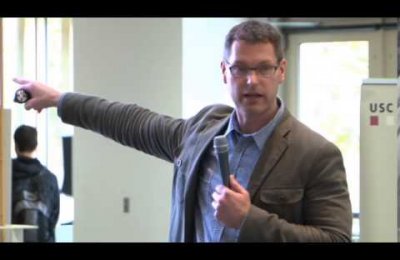In spring 2012, USC Annenberg won an open competition by the Federal Communications Commission to lead a group of prominent scholars from top universities in conducting a literature review (of approximately 500 scholarly articles) regarding the “critical information needs” of the American public. Our purpose was to provide and encourage fact-based, nonpartisan and rigorous analysis in support of policy-making at a time of sweeping changes in the media and in American society.
The resulting findings have been highly regarded, and embraced by the FCC with the goal of meeting the agency’s statutory mandate of issuing a triennial report to Congress about the barriers that “may prevent entrepreneurs and small business from competing in the media marketplace, and pursue policies to eliminate those barriers.” This literature review was the extent of USC Annenberg's involvement in the project.
All Americans understand that news outlets play a critical role in providing a valuable public service, such as alerting the public when a hurricane is imminent, providing essential information about health and employment opportunities, or informing citizens about policies that their local city council is considering. Understanding this role and how it is changing in the 21st Century was the focus of the Annenberg-led study.
There are far-reaching changes underway in the media outlets that Americans rely upon for critical information. Study after study show that newspapers are vanishing at a rapid rate. Consolidation in the radio industry has put increasing numbers of radio stations under the control of owners who live and work far away from the listeners. And now the TV industry is facing its own consolidation.
Americans must have access to nonpartisan, rigorous and accurate information so that they can understand the profound impact of these changes on the ability of local communities to get information in a timely manner. The USC Annenberg School for Communication and Journalism is proud to have led this scholarly effort, and we remain deeply committed to the value of advancing information in the public interest. Ambassador Walter H. Annenberg established the Annenberg School for Communication and Journalism. His mission statement remains the central focus of the School:
“Every human advancement or reversal can be understood through communication. The right to free communication carries with it the responsibility to respect the dignity of others, and this must be recognized as irreversible. Educating students to communicate this message effectively and to be of service to all people is the enduring mission of this School.”








